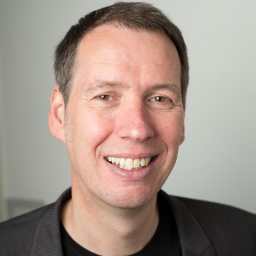Researchers have found that the words we use on Twitter can predict whether we’ll get heart disease! Health psychology expert Phil Parker explains how you can change your language to make yourself feel happier every day
New research has found that the kinds of language people used on Twitter was the best predictor of whether they’d get heart disease, Hold that thought for a moment — yes, their choice of words were a better predictor than knowing if they smoked, had diabetes, were obese or any other known marker. But that’s just the tip of the iceberg, as there are so many ways of using the wrong kind of language that can reduce and limit our happiness, relationships and health.
Indeed, the old adage ‘sticks and stones can break my bones, but words can never hurt me,’ couldn’t be more wrong, research has found. When we use words connected to pain, like ‘burning,’ ‘intense,’ and ‘sore,’ it increases activation of the parts of our brain that produce pain and makes our experience of pain stronger, Professor Thomas Weiss and his team at the Institute of Psychology of The friedrich-Schiller-University Jena, Germany found in a study in 2010.
The kinds of language people used on Twitter was the best predictor of whether they’d get heart disease.
The good news is once you’re aware of this — and that’s what I’ll be mapping out for you in this piece — it’s really easy to change, and even better, you’ll discover that words can also have the power heal and dramatically increase happiness. Let’s begin with five of the most common ways our language gets us stuck:
1. Negative words
Following the research that shows that ‘pain related words’ cause pain or predicted heart disease, it’s no surprise that using familiar but negative words and phrases such as, ‘I HATE that,’ ‘it’s all going to go HORRIBLY WRONG,’ ‘I’m so WORRIED about this,’ will equally trigger the parts of the brain that know all about hatred, things going wrong and worry. The result is that, although we didn’t mean to, we experience more hate, doubt and concern.

between and good day and a bad one.
The solution is simply to recognise when we’re engaging in these kinds of conversations and turn the words around to positives. So ‘I hate that’ becomes ‘I don’t love that’ — swap judgements about ‘it’s going wrong’ and ‘worry,’ which are made-up predictions about things that haven’t actually happened yet anyway, for anticipation that things will be even better than hoped. For example, ‘This meeting is not my favourite part of the day but I’m looking forward to my meet up tonight where I can catch up with X,’ or ‘We’re working through the process’ to describe something you feel isn’t quite going to plan. It doesn’t guarantee things will be perfect, but it will prevent your brain from making the worst of things.
2. Negative Wants
When people are asked the life changing question, ‘What do you want?’ you can often hear Negative Wants pop up with answers like, ‘not this.’ This, similarly to the negatives of the previous section, causes problems which can be experienced through this ‘Trying out the Elvis’ exercise:
For the next 2 seconds I would like you to not think about Elvis Presley juggling 12 purple monkeys.
Did you notice what happened when you tried?
You probably immediately thought about Elvis Presley juggling 12 purple monkeys. This is because the brain can’t directly process ‘negatives’ such as ‘don’t think about Elvis,’ without first understanding the instruction. And to understand that instruction it has to process the idea of what ‘Elvis Presley’ is so it can be ready to not think about it.
Make sure you focus on what you want rather than what you don’t want.
As a result an instruction with a negative always has completely the opposite effect than the one that it was designed to get. Make sure you focus on what you want rather than what you don’t want.
Often you will hear people say, ‘I’m not at all negative, I spend all my time making sure I am not stressed.’ Test your new knowledge by highlighting the words in this phrase that are negative wants, the instructions to the brain that ask it not to do things.
You should have easily spotted ‘not negative’ and ‘not stressed.
3. Hidden Negatives
These are words that seem, at first glance, really positive but actually trigger the brain negatively as they refer to a negative state, but don’t mention it directly. A good example is ‘I want to be FREE’ — this sounds great! But in this case it’s highlighting you want to be free FROM something. This draws our attention back again to what it is want to be free from, often oppression, stress, unhappiness, whatever. which switches our brain into the less happy places.

you are can lead to a negative mood.
There are two major Hidden Negatives to look out for:
Super hero statements
I’ve called them this because they are the kind of tag line a super hero would have; He’s bold, brave, strong courageous, and he’s not afraid of danger.
- I want to be bold
- I want to be brave
- I want to feel strong
If you have to feel any of these things, then you must be doing something that is quite scary. This reminds you of the fear and takes you back into the negative side of the brain. If somebody said, for example, ‘I’m going to be very brave and go swimming,’ this tells us something about how they feel about swimming, and that swimming is something they fear in some way. Swap these words for something more clearly positive such as fun, relaxed, excited. For example, ‘I’m so excited about going swimming.’
‘In control’
‘I want to be in control.’ Again this sounds like a great thing, but the only things we need to be in control of are things that are inherently chaotic, unpredictable, troublesome or dangerous. Notice where the word ‘control’ normally shows up in language: drug control, traffic control, control of dangerous dogs, crowd control, weight control, bladder control. They’re not terribly happy thoughts are they?
It is usually best to replace the words ‘in control’ with ‘making great choices.’
If someone came back from holiday and you asked them, ‘How was it?’ And they replied, ‘It was a holiday full of control,’ that doesn’t sound too positive, does it? It is usually best to replace the words ‘in control’ with ‘making great choices.’ So ‘I want to be in control’ becomes ‘I want to make great choices’.
4. Asking ‘why?’
This often strikes people as an odd thing to suggest, as we’ve been so well trained to ask the ‘Why?’ question that we assume it’s a great question. But let’s find out how useful it is. Here are some blocks to success and happiness that you’ve probably come across at some time or other. Imagine someone has just said one of the following statements to you. Ask ‘Why?’ for each of these and see what results you get:
- I just don’t love you anymore.
- There are no seats left on the last train to Paris.
- We haven’t given you the job.
- I’m depressed.
As you notice the kind of answers the ‘Why?’ question produces, you can see that it is actually a limited line of enquiry, as it ensures we focus more on the problem and less on the solution.
Sometimes ‘Why?’ will get us some vital information, like an answer to why we weren’t given a particular job, but more often it will only get us deeper into the detail of the problem such as ‘I don’t love you anymore because …’ or ‘I’m depressed because …’ or ‘I don’t know.’ These ‘stories’ rarely help us find solutions.
Knowing the cause of a problem doesn’t provide you automatically with a solution.
The ‘Why?’ question is an attempt to find out where it all went wrong, to identify the cause of a problem. But knowing the cause of a problem doesn’t provide you automatically with a solution, and often ends up with one person blaming another, and its use in relationships is often troublesome. ‘Why didn’t you take out the garbage as I asked?’ is a question that invariably leads to an argument and probably some Olympic-style sulking.
Anytime you feel tempted to ask the ‘Why?” replace it with a ‘How?’ as whilst ‘why’ tends to lead to blame and revisiting the past, ‘how’ moves toward solutions and the future.
5. ‘Oughts’ and ‘shoulds’
The following words will usually show up a tendency we have to keep someone happy or to comply with someone else’s rules, often driven by guilt.
- I have to
- I need to
- I ought to
- I must
- I should
Examples are:
- I have to be hard on myself
- I should think of others before myself
- I musn’t enjoy myself too much
- I ought not to say how I really feel
- I shouldn’t say ‘I’m good at this’
Remember it’s not our role or particularly healthy for our relationships to try and make others happy, especially at a cost to our own happiness — relationships flourish best when both parties are happy. Equally trying to make someone happy because you feel you should is a bit of an empty experience for them too. Just consider, would you like someone to do something for you, like be nice to you for example, just because they felt a sense of obligation?

meaningless roles that can stress you out.
Anytime you feel the urge to do something because you ‘should,’ check out if you want to, if it’s necessary (like taxes, you should pay those) or important enough to you. Keep ‘shoulds’ to a minimum and you’ll find your life will flourish as a result.
That’s a brief introduction to some of the ways language can help or hinder your happiness, there’s much more to cover, but do leave a comment to let me know how quickly things change as you put these simple but powerful new skills into practice.

Visit Phil’s Website philparker.org, follow him on Twitter and Facebook.
Like this article? Sign up to our newsletter to get more articles like this delivered straight to your inbox.













































































































